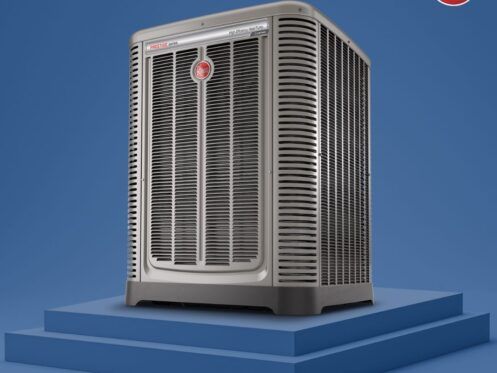A vast majority of homeowners rely on either electric or gas furnaces to heat their homes. When the cold season approaches, the debate about different furnace types becomes common. Whether you are about to install or replace your heating system, you are faced with the big question: which furnace type is better? If you are given a guide on the advantages and disadvantages of gas and electric furnaces, making an informed decision is easier.
Advantages of Gas Furnaces
1. Cost Efficiency
The affordability of natural gas translates to lower operational costs compared to electric alternatives. You can save at least 50% of your heating bills while using a gas furnace. This can translate to about $1,700 in a year.
2. Reliability During Power Outages
Even during a power outage, you can continue enjoying heating when using a gas furnace. Unlike electric furnaces, which rely on a continued electric power supply, gas furnaces can continue running even when power is out. In areas prone to power disruptions due to severe weather conditions, gas furnaces are more reliable.
3. Heats Your Home Faster
The fast-heating abilities in a gas furnace are due to the unique combustion process and design. When activated, the burners ignite and quickly generate heat. Swift heating is advantageous during colder seasons as homeowners can experience faster and more efficient heating.
4. Adaptability
When you install a new gas furnace system, it easily integrates with the existing HVAC system. There is no need for a complete replacement of the current HVAC infrastructure. This makes the installation process simple.
5. More Desirable
Gas furnaces are the preferred choice among homeowners and renters. For people involved in property management or considering the future sale of their homes, gas furnaces are the ideal option. Renters prefer gas furnaces because they are not affected by high installation and maintenance costs. Instead, they will benefit from lower monthly heating expenses. This makes renters opt for homes with gas furnaces.
Disadvantages of Gas Furnaces
1. High Cost of Installation
Even if gas furnaces are more cost-efficient in the long run, they are more expensive to install than other heating systems. The installation process involves several components which contribute to the high expense. It requires a gas line and proper ventilation systems. Compliance with safety regulations and local building codes may also add to the costs.
2. Risk of Gas Leak
The natural gas used in gas furnaces is colorless and odorless. It is only easy to detect it with added odorants. If there is a leak in the gas line or furnace, it may result in the release and accumulation of the gas in the house. Natural gas is highly flammable, and an open ignition, such as an electric spark, can lead to fire or explosion. The leaked gas also exposes the occupants to health risks due to oxygen displacement.
3. Dependency on Continued Natural Gas Supply
Gas furnaces require a steady supply of natural gas to operate efficiently. This dependency makes homeowners vulnerable to fluctuations in gas prices. Homeowners might experience increased heating costs if the fuel price goes higher. Infrastructure issues, natural disasters and geopolitical events may disrupt the gas supply, causing inconvenience and discomfort.
4. Carbon Monoxide Leaks
Carbon monoxide is a colorless and odorless gas produced during the combustion of natural gas. Faulty components in the furnace or poor ventilation can result in this gas accumulating indoors. Exposure to high levels of carbon monoxide can lead to symptoms like headache and dizziness. Sometimes, it results in severe outcomes, including unconsciousness and death. Homeowners are advised to install carbon monoxide detectors to mitigate this problem, which also incurs extra costs.
Advantages of Electric Furnaces
1. Efficiency
Electric furnaces do not experience heat losses associated with combustion. Directly converting electric current into heat ensures efficient energy use to heat the house.
2. Ease of Installation
Electric furnaces are easy to install due to the lack of complex infrastructure. There are no fuel lines, venting systems or handling of combustible materials. The simple structure of these furnaces reduces installation costs.
3. Quiet Operation
The absence of burners, fans and mechanical components associated with heating makes electric furnaces operate with minimal noise. This is unlike some heating systems that produce noise through the combustion process or the movement of air through the ducts. Low noise levels make electric furnaces a preferred choice for residents who prefer a serene environment.
4. Safety Features
Modern electric furnaces have safety features to protect the system and occupants. They have automatic shut-off in the event of overheating to prevent fire hazards. They also don’t have open flames or hot surfaces, reducing the risk of accidental fires and burns.
5. Compatibility with Renewable Energy
Electric furnaces can be powered by electricity generated from renewable sources such as solar, wind and hydroelectric power. This allows homeowners to reduce their carbon footprint and contribute to a cleaner environment. Renewable energy sources are also limitless and can lead to cost savings.
Disadvantages of Electric Furnaces
1. High Operational Costs
While electric furnaces are efficient at converting electricity to heat, the operating costs can still be higher compared to different systems. The heating bills are dependent on the local price of electricity. In areas where this cost is high, a homeowner is exposed to high heating bills.
2. Dependency on Electricity
Electric furnaces rely entirely on electricity power. This creates a vulnerability, especially in places prone to power outages or electrical grid disruptions. In those situations, the furnace is inoperable, leaving you with no heat source. Some homeowners opt to install backup power sources such as generators. However, this adds an extra layer of cost and maintenance.
3. Warm-Up Time
Even if electric furnaces provide quick activation and can produce heat immediately, they may take slightly longer to reach the desired temperature than gas furnaces. This is because they rely on electric resistance heating elements. Generating heat through resistance takes some time to raise the temperature of the air circulating indoors. This can impact the speed at which a home warms up, potentially leading to delays in achieving the desired comfort level.
4. Consistent Professional Repair
Electric furnaces have complex components that require professional technicians to repair them effectively. Handling electrical components poses risks, and homeowners always have to rely on professional assistance for the most minor issues. The availability of experts in certain locations can cause delays in obtaining timely repairs. While regular maintenance can reduce some issues, this consistent reliance on professionals for repair is disadvantageous to homeowners.
Making an informed choice is easier when you know the above cons and pros of both electric and gas furnaces. You may also consider professional guidance from professional HVAC experts. Childers Air Plumbing & Electric provides reliable heating, cooling, electrical and plumbing services in Beckley, WV. We can help you with energy generation issues, electrical rewiring, indoor air quality and plumbing repairs. If you have any issues, contact Childers Air Plumbing & Electric today, and we will fix them for you.

